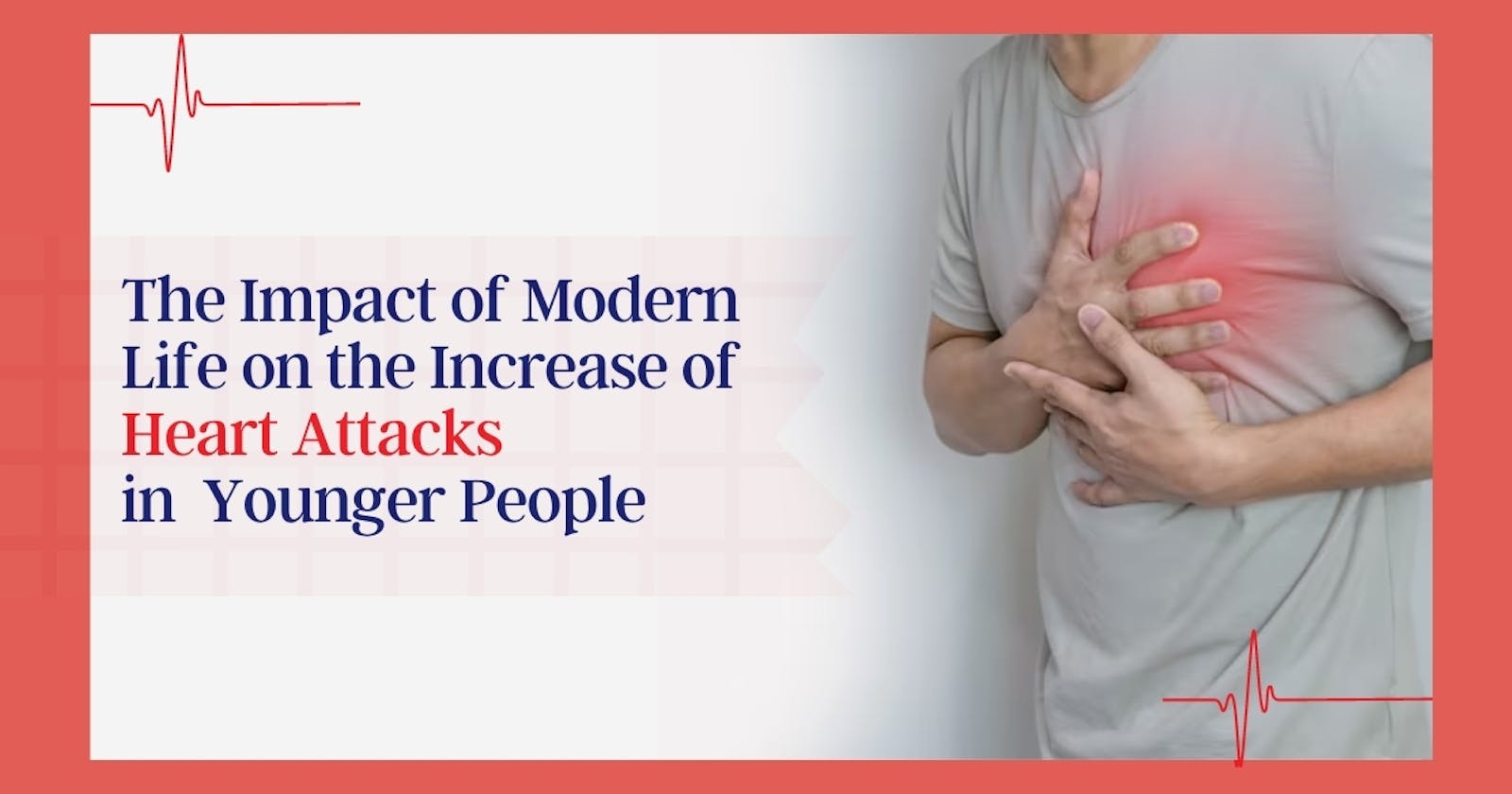Heart attacks are no longer considered a problem that only affects older adults. Unfortunately, the number of young people experiencing heart attacks is rising. There are several reasons why this is happening, many of which are related to modern lifestyle factors, which a heart specialist in Gurgaon can briefly explain.
In this blog, we will explore the impact of modern life on the increase of heart attacks in younger people and what can be done to prevent them.
Lifestyle factors that increase the risk of a heart attack in young people Include:
- Poor diet:
Modern life is fast-paced and often involves:
Skipping meals.
Grabbing quick and unhealthy options on the go.
Consuming high amounts of processed foods.
These dietary habits increase the risk of heart disease by contributing to high blood pressure, high cholesterol, and obesity.
- Sedentary lifestyle:
Many young people lead a sedentary lifestyle, spending long hours sitting in front of a computer, driving, or engaging in leisure activities like watching TV or playing video games.
A lack of physical activity increases the risk of heart disease by promoting the development of obesity, high blood pressure, and high cholesterol levels.
- Stress:
Stress is a common issue in modern life and affects young people's health. Chronic stress can lead to heart disease by increasing blood pressure, causing the release of hormones that can contribute to heart disease, and triggering unhealthy behaviors such as overeating and smoking.
- Substance abuse:
Drug and alcohol abuse is common among young people and increases the risk of heart disease by causing damage to the heart and blood vessels and increasing the likelihood of heart attacks and strokes.
- Sleep deprivation:
Many young people don't get enough sleep, which can increase the risk of heart disease by affecting hormones, inflammation, and heart function.
- Smoking:
Smoking is a major risk factor for heart disease and unfortunately, is common among young people. Nicotine and other chemicals in tobacco can cause damage to the blood vessels and heart, increasing the risk of heart attacks and strokes.
What can be done to prevent heart attacks in young people:
- Maintaining a healthy diet:
Eating a diet high in fruits, vegetables, whole grains, and lean proteins and low in processed foods can help reduce the risk of heart disease in young people, and you can take advice from a heart doctor in gurgaon for the proper balance diet according to your requirements.
- Engaging in physical activity:
Young people should engage in regular physical activity, such as playing sports or working out, to reduce the risk of heart disease. Aiming for at least 30 minutes of moderate-intensity physical activity daily is a good start.
- Managing stress:
Young people should learn to manage stress through yoga, meditation, or deep breathing exercises. They should also avoid unhealthy coping mechanisms like substance abuse.
- Quitting smoking:
Young people who smoke should try to quit as soon as possible. Further, many resources are available to help, including nicotine replacement therapy, counseling, and support groups.
- Getting enough sleep:
Young people should aim to get at least 7-9 hours of sleep per night to reduce the risk of heart disease.
- Seeking help for substance abuse:
Young people who struggle with substance abuse should seek help as soon as possible. There are many treatment programs, support groups, and counselling services that can all be effective in helping young people overcome addiction and reduce the risk of heart disease.
The Alarming Rise of Heart Attacks in Younger Generations
People need to understand that heart disease is not a problem that only affects older adults and that they need to take steps to protect their health now and in the future. By changing their lifestyles and seeking help, young people can reduce their risk of heart disease and prevent heart attacks.
To change your life, the top cardiologist in Gurgaon, Monik Mehta, advises including an exercise program, a balanced diet, and adequate sleep. By doing this, you can dramatically reduce your heart attack risk.
To Book an appointment with our Cardiologist:
Dr. Monik Mehta (MBBS, MD, DM, FACC)
Interventional Cardiologist, Cardiologist, Cardiac Electrophysiologist
24*7 Helpline No. +91–9873214382
Email: heartcare@healthyheartsgurgaon.com
Website: www.healthyheartsgurgaon.com
